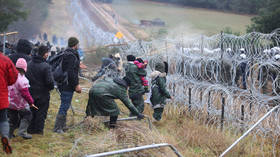New chief of Pegasus spyware firm quits after two weeks
The recently appointed CEO of the Israeli company behind the Pegasus spyware allegedly used to monitor activists has quit less than two weeks after a US decision to blacklist the group.
Itzik Benbenisti replaced the founder and former CEO of the Israeli NSO Group at the start of November, as the company sought to address the challenges over its Pegasus spyware. Reports claimed it was used to monitor activists, journalists, and politicians around the world.
Due to the ongoing economic and legal challenges facing the company, Benbenisti decided to tender his resignation, having worked for only two weeks as CEO and three months in total at the embattled firm.
NSO Group has not issued a public statement on Benbenisti’s resignation, but confirmed to Israeli media that he was intending to step aside from the CEO position.
Following the allegations made against the company, the US Commerce Department added NSO Group to its blacklist, for activities contrary to America’s national security or foreign policy interests.
The US department accused the group of allowing its spyware to be used “to maliciously target government officials, journalists, businesspeople, activists, academics, and embassy workers.”
Back in July, a list of more than 50,000 phone numbers was leaked, revealing alleged targets of Pegasus malware. On it were hundreds of individuals, including business executives, politicians, activists, journalists, and government critics.
At the time, NSO Group refuted the allegations, arguing that the leaked list was “based on misleading interpretation of leaked data from accessible and overt basic information.” It has since been reported that the group has offered to work with the United Nations to regulate the use of spyware to prevent potential abuses, and to create an “international legal framework.”
Like this story? Share it with a friend!















